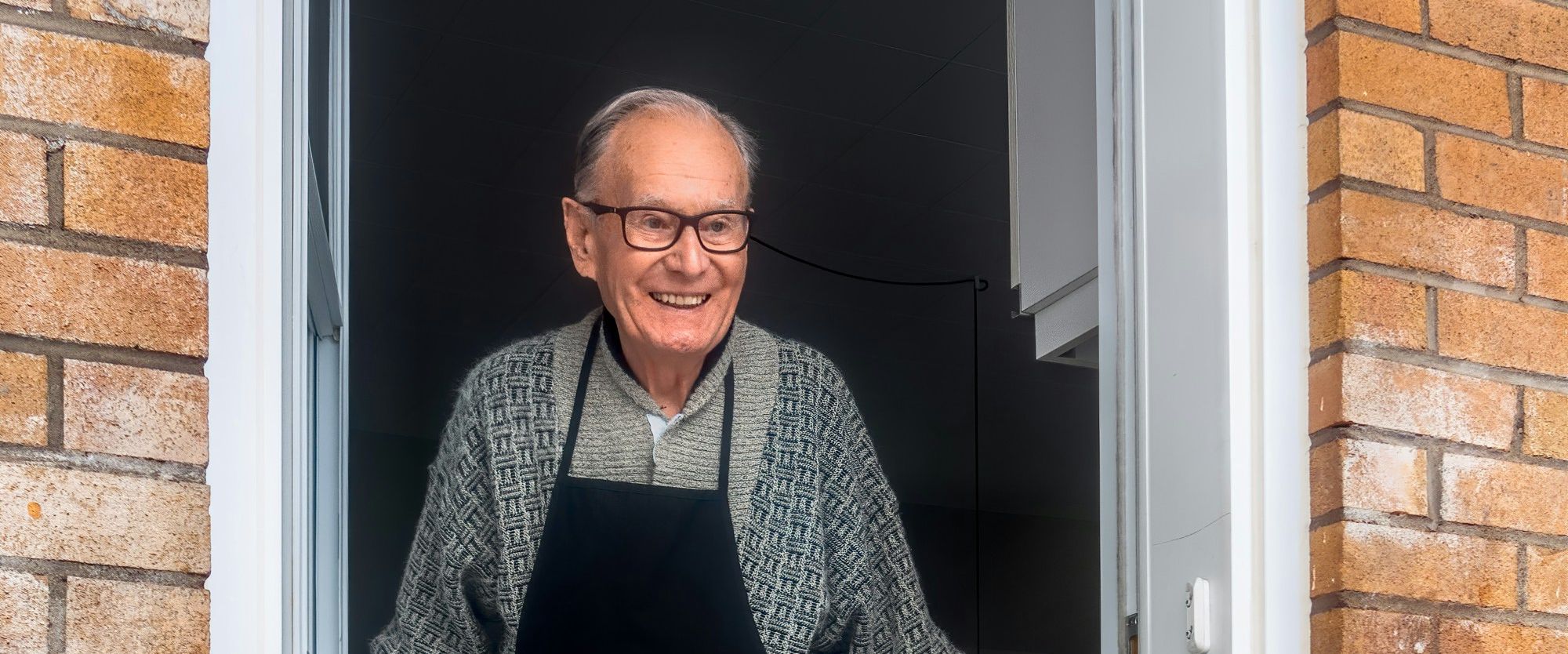How you can help dementia patients feel safe during the Winter
With temperatures dropping and bad weather arriving, it’s important that people with dementia get the extra care they need to be comfortable and feel safe.
Winter often brings more challenges for people with dementia and their caregivers, facing heightened feelings of social isolation and stress. Alongside the extra physical hazards from ice and snow, sometimes symptoms can get temporarily worse. People with dementia may not be able to communicate that they are cold or explain how they are feeling.
It’s important to feel prepared during the colder months, here are a few actions you can take to reduce stress and make things easier for people with dementia and their caregivers.
Six ways to help people with dementia feel safe
Make sure the person is warm and dressed appropriately
As the temperature drops, keeping people with dementia warm and comfortable becomes a priority. When it comes to clothing, layers are important for keeping warm especially woolen and fleece. When outdoors, hats, scarves, coats and gloves will help retain warmth. Non-skid boots are also a must in cold/icy conditions to help people with dementia feel safe going outside.
While indoors, try to keep rooms that are occupied during the day at a good temperature. Looking to draught-proof their home with thermal curtains and draught excluders can help keep a consistent temperature. That being said, be aware that overheating is possible and can lead to dehydration. Aim for around 20 degrees Celsius in occupied rooms.
Encourage the person to stay active
There are many benefits to staying active - especially in the depths of winter. Keeping active helps boost circulation, supports brain health, controls inflammation and maintains memory function, all key to reducing the severity of dementia symptoms. If possible, going outdoors can also improve the person’s mood.
Aim for active moments at least once per hour. Simply getting the person with dementia to move arms, legs or toes can be beneficial if walking is difficult or there’s a storm outside. Any light exercise that is within the person’s abilities will help them stave off winter’s chill.
Maintain a routine
Keep a regular schedule for checking up on the person with dementia and/or carers. Routine can be very important to help them feel safe so get in contact at the same time each day. Often, just checking in consistently will help them feel safe - and make sure they are well stocked with supplies and support.
If there does need to be a routine change due to the limited daylight or colder temperatures, do them slowly and gradually. Any major disruptions can cause the person with dementia to become disorientated, frustrated or agitated.
Encourage a balanced, healthy diet.
A nourishing and balanced diet can help the cognitive function of people with dementia, allowing them to feel safe and in control. The cold, dark of winter can be hard on our physical and emotional selves, but a colourful diet of vegetables and staying well hydrated will help.
Encourage nutritious, vitamin-rich recipes like stews that are warming and gentle on the system. Keep snacks on hand throughout the day to maintain energy levels and avoid drinking alcohol as it makes you feel warm but takes heat away from vital organs.
Make plans for emergencies
With the recent storms fresh in mind, knowing your contingency plans in case of emergencies will make you and the person with dementia feel safer. If you know bad weather is coming, make sure that food and water are well stocked and any devices are charged. Keep torches, blankets and battery packs easily accessible in case of power outages.
It’s also worth considering back up plans if extreme weather prevents travel. If the person with dementia has in-home care, review what contingency plans they have in place. Discuss what help can be provided if there is an emergency.
Connect with the local community
It’s amazing how a little support from neighbours and friends can make all the difference. Look for opportunities for socialising - it may be harder in winter but far from impossible. Decreasing loneliness and knowing that there are more friends and family looking out for the person with dementia will help them feel safe.
Connecting digitally is an option but in-person is best. Look for scheduled activities such as those advertised by the local library to support the person with dementia’s emotional health as well as providing structure and routine.
Wisteria House Care Home
For extra support and care for people with dementia, we provide a welcoming comfortable home where they can feel safe and supported. Wisteria Care Home specialises in high quality of life for people living with dementia, treating each person as the individual they are. Rated CQC Outstanding, we create a safe and friendly environment that residents can enjoy. To find out more, please get in touch.
